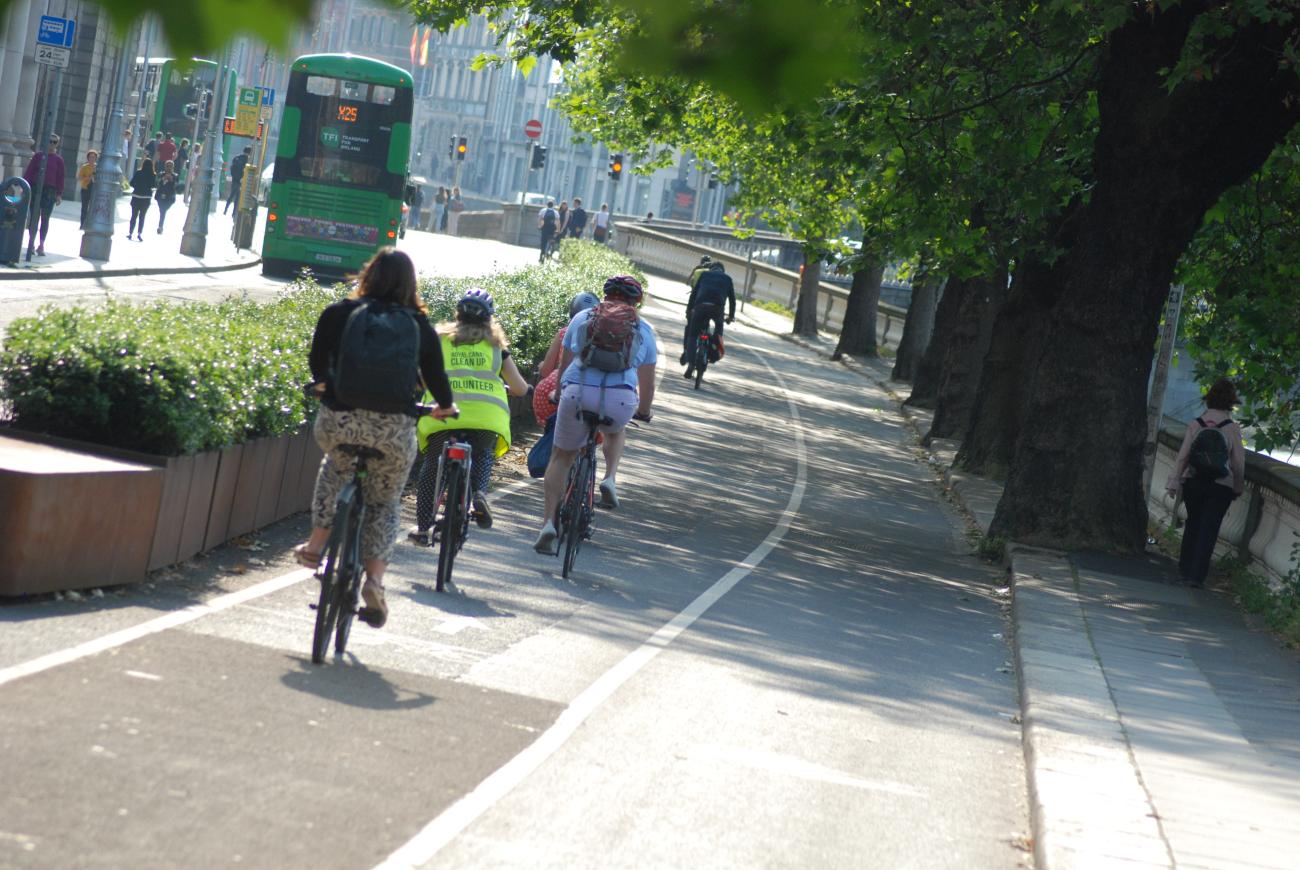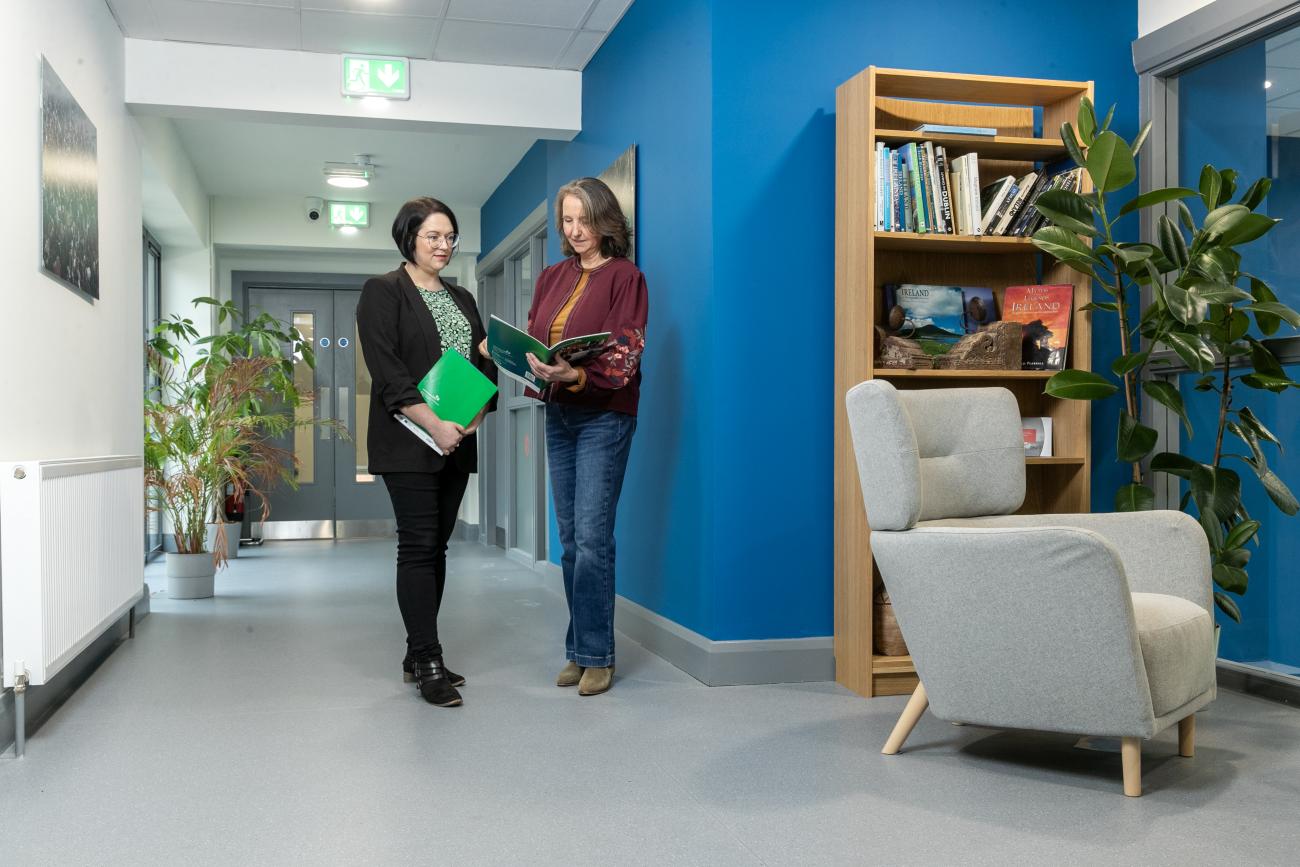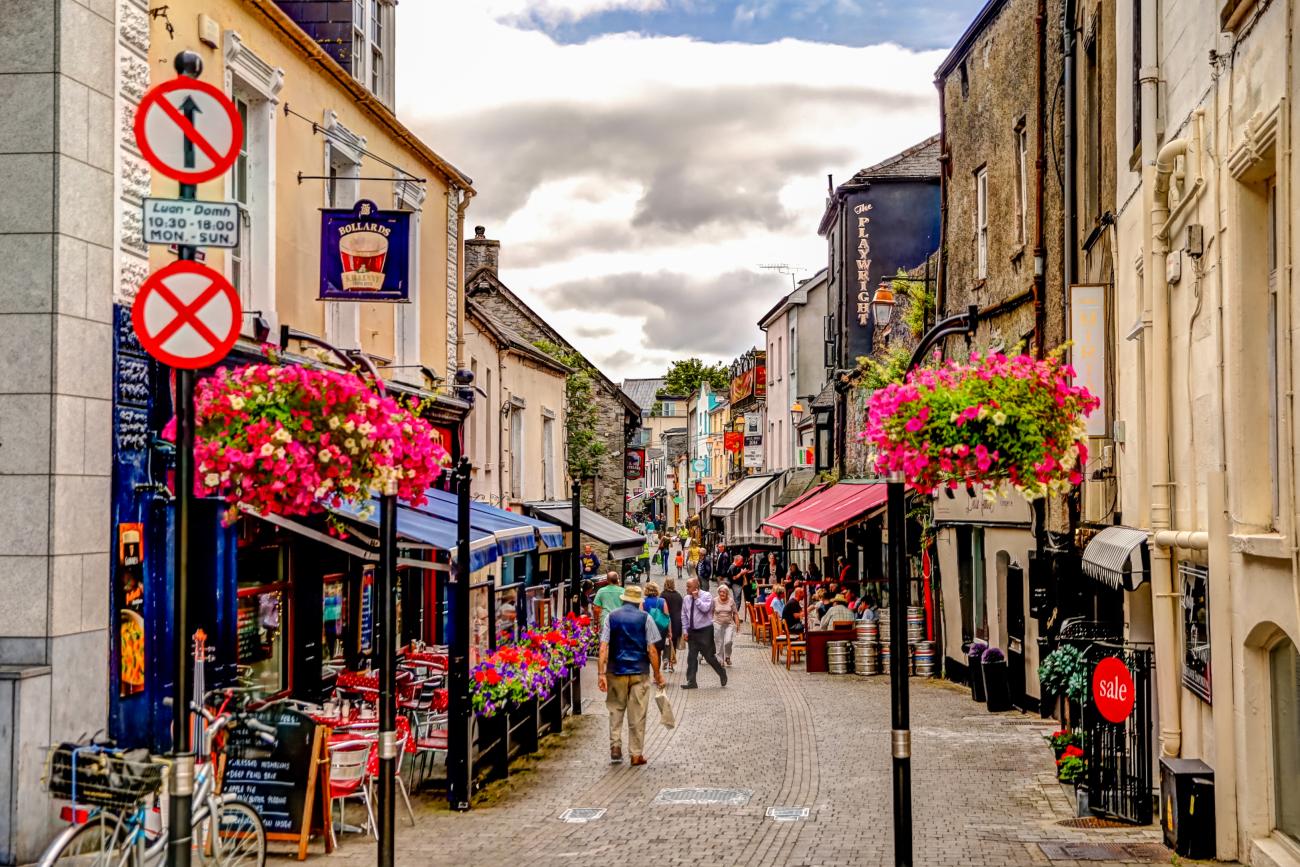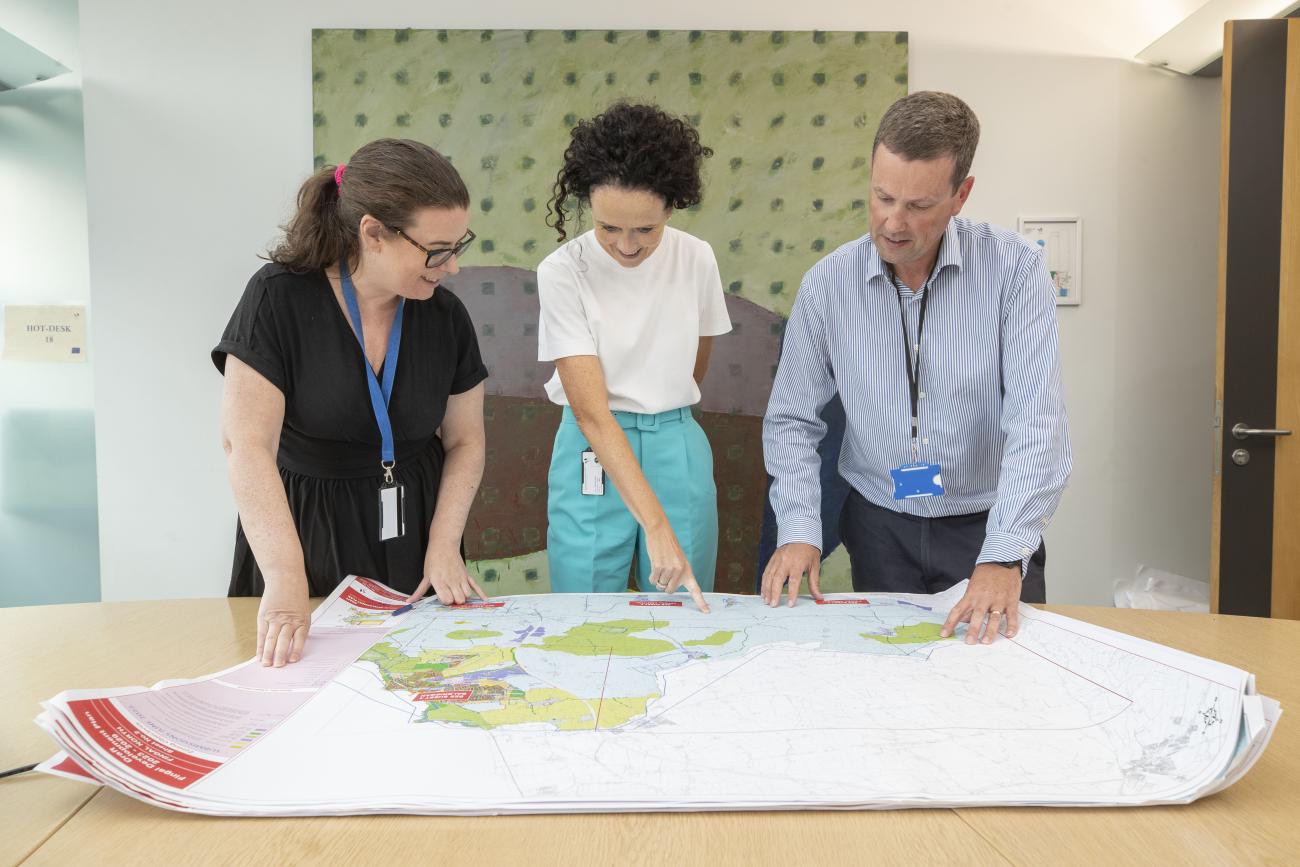7 ways local authorities support local businesses every day
Running a successful business requires the right environment. Local authorities across Ireland provide many of the foundations that help businesses to grow and thrive, including infrastructure development, practical supports and funding opportunities.
Here are seven ways that local authorities spur business and support economic development.
1. Regenerating town centres and main streets
Local authorities invest in making towns and villages better places to spend time, with pedestrian spaces, upgraded lighting, improved accessibility and attractive public areas. These projects help create the conditions where shops, cafés and local services can do well by increasing footfall and encouraging people to linger.
For example, local authorities support development strategies through the Town Centre First programme - an approach that's designed to enable businesses and communities maximise the strengths and assets of their town.

2. Supporting local trade through licensing and outdoor amenities
Street markets and outdoor dining bring life into town centres. Local authorities license and coordinate these activities, making it easier for small businesses to attract customers. Improvements to pedestrian zones and community spaces also help create lively, welcoming areas where people want to spend time.
In recent years, many cafés and restaurants have expanded their outdoor spaces with support from their local authority. These initiatives have helped businesses increase capacity and attract more visitors.

3. Building the infrastructure businesses rely on
Business owners depend on street-level infrastructure: roads, footpaths, street lighting, signage and accessible town centres. Local authorities build and maintain most of this network, ensuring that people can reach local shops and services easily. Good infrastructure improves customer access, supports deliveries and can reshape how people move through towns.
A good example is the wave of active travel upgrades in places like Fingal, where new walking and cycling links are making village centres easier to access and helping local businesses benefit from increased visitor numbers.

4. Helping startups and small firms through the Local Enterprise Offices
Local Enterprise Offices (LEOs) give people a practical route into starting or growing a business. Their supports include mentoring, financial assistance, management development programmes, networking events and training on everything from marketing to finance. These services help new businesses to take the next steps and established firms to become more resilient.
For example, LEO Business Expansion Grants have helped small enterprises scale up and create new jobs, while the Grow Digital Voucher scheme supports small firms improving their online presence.

5. Promoting places through tourism and shop-local campaigns
Local authorities work with local businesses, community groups and national partners to promote their areas. Tourism marketing, festivals, trails, events and shop-local campaigns all bring more people into towns. These activities boost spending in hospitality, retail and creative businesses, and they help strengthen a sense of local identity.
Fingal County Council’s promotion of the Look for Local campaign is a great example, encouraging people to support businesses in their community. Local authorities along the Wild Atlantic Way also collaborate closely with Fáilte Ireland to enhance trails, visitor points and related infrastructure that support thousands of local tourism enterprises.

6. Planning for prosperity through LECPs and development plans
Local authorities shape long-term economic conditions through statutory plans such as the Local Economic and Community Plan (LECP) and County or City Development Plans. These documents set priorities for sustainable development, regeneration, enterprise support, housing and community wellbeing. They ensure business growth happens in a coordinated, planned and sustainable way.
A strong illustration of this is Cavan County Council’s LECP, which outlines measurable goals to support enterprise, employment and inclusive local development across the county.

7. Creating space for enterprise through hubs and co-working centres
Enterprise centres, remote working hubs and co-working spaces give people flexible and affordable places to work. Local authorities support the development of these facilities in towns and villages, often partnering with local groups. These spaces help startups get established and give remote workers professional environments close to home.
Cork County Council’s e-Centre network shows this in practice, offering small offices, shared desks and meeting rooms that help local businesses operate and grow without high overheads.
